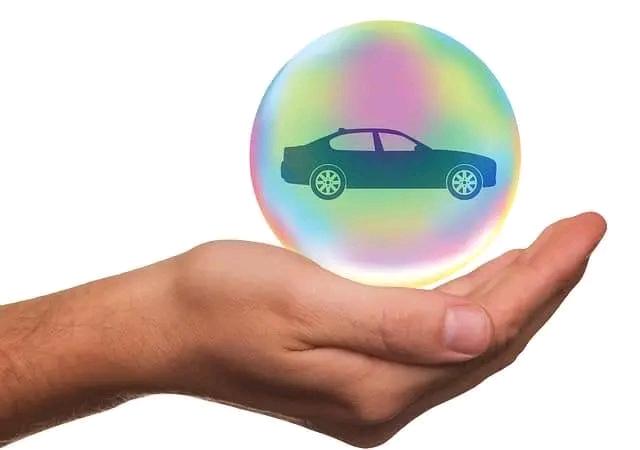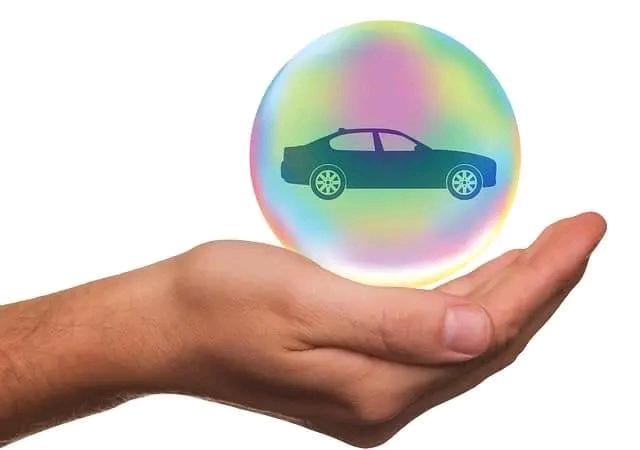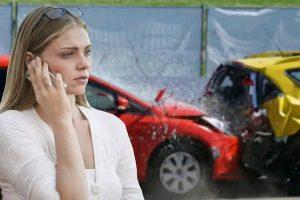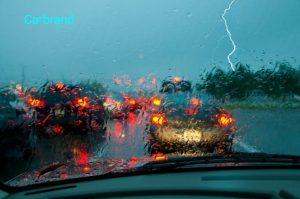
24 hr Car insurance
24 hr Car insurance.
24 hr Car insurance. Nowadays, it’s one of the most common question all over the united states. Let’s know about 24 hr Car insurance.
24 hr Car insurance.
24 hr Car insurance. Car insurance is a type of policy that provides financial compensation for damages to your car in case of an accident. In addition to the basic liability coverage mandated by most states, there are many tiers available to provide additional coverage for a wide range of potential damages.

Do I need car insurance?
Years without a claim can make you wonder if you need car insurance at all. You may think that since you are a safe driver, and nothing ever happens, you don’t need to keep paying premiums.
24 hr Car insurance. However, if you own a car, it is vulnerable to damage in many situations that have nothing to do with your driving ability. Plus, that’s not to mention the risk to every other driver on the road. Auto insurance can provide compensation for damage caused by things you cannot control.
If you are at fault in a car accident, the injured party will seek compensation. Without car insurance, you will be financially responsible. You may be forced to pay for all damages out of your own pocket. Most people cannot self-insure; This is why most states require at least a PLPD to be purchased by all drivers. 24 hr Car insurance. In short, PLPD can protect you against financial loss.
Daycare insurance: Best Policy for Childs Safety & Growth
Car insurance works.
Do you know, Car insurance is a contract between you, the insurance company. It protects you from financial loss in case of accident or theft. In return for your premium payment, the insurance company agrees to pay a deductible less the amount of loss stated in your policy.
24 hr Car insurance. Better not to have any claim. This will keep your insurance rates low and you will avoid the hassle of claims. By carrying car insurance, you are legal to drive. You will also be protected against possible future claims.
A. How does car insurance work?
This is how car insurance works:
A car owner takes out a policy, which means they sign a contract with an insurance provider. The contract is to cover the provider (meaning to pay or help in a certain way) if something happens, such as an accident or the car is stolen. The contract is for a fixed period, such as six months or one year.
The car owner (now called the policyholder) pays the insurer premiums, which are payments made at regular intervals (such as monthly or annual payments).
If there’s an accident or theft (or something that’s covered by the policy), the car owner can make a claim, which means they can ask the provider to cover some or all of the cost of repairing or replacing their car. Usually, the car owner also has to contribute something towards the cost (this is called an insurance excess).
The policy usually only lasts for a fixed period of time, such as annually or every six months, depending on the insurer. The car owner can then choose to renew the policy, which is extending the cover for another specified period. The premium price may change at the time of renewal.
Car insurance can cover the car, the car’s driver and passengers as well as the car’s property, depending on the type of policy purchased.
Before signing up for insurance, it is important to understand exactly what you will be covered for and under what conditions and what will be excluded from the policy. Read important documents like Product Disclosure Statement (PDS) and Target Market Determination (TMD) before considering a car insurance policy.
B. Different types of car insurance and what do they cover?
There are different types of car insurance that you can take out depending on the type of insurance cover you need:
Compulsory third party (CTP) insurance: protects you financially if you injure or kill someone in an accident and is compulsory for Australian drivers in every state and territory.
Third Party Property Damage Insurance: Covers you if your vehicle damages someone else’s property (such as their car or home).
Third Party Fire and Theft Cover: Covers if your vehicle is damaged by fire or stolen and includes cover provided by third party property damage insurance.
Comprehensive car insurance: the most comprehensive (and usually the most expensive) form of cover.
Provides a degree of cover for damage to your own vehicle in an accident, as well as the types of cover provided by third-party property and fire and theft insurance.
Car insurance definition and examples
Car insurance is your financial protection for owning a car. This can cover the cost of damage to your car and the other driver’s car. It may even cover the associated medical bills depending on the situation.
If you’ve never been in an accident, it’s possible that you’ll never have to file an insurance claim. But you will probably have at least one accident in your life.
Let’s say, suddenly you are in an accident. Another driver rear-ended you and not only that at a red light. Both cars were damaged; You have whiplash as a result. The repair shop quotes $3,000 to fix your rear bumper and replace the rear windshield.
24 hr Car insurance. The other driver, who is at fault, calls their insurance company to file a claim, and so do you. The other driver’s policy covers, the full amount of your car repairs. Not only that the most of your medical bills. Picks up the rest of you.
But what if the other driver is uninsured?
They may not be able and you have to pay out of pocket. Fortunately, your insurance policy covers damage caused by other drivers. This way, you will be able to recover most of the costs.
Finally, suppose none of you are insured. You can try your luck and sue the other driver for damages. Or you can take the loss and pay out of pocket. Either way, lack of insurance will cost you.
Disagree.
Accidents happen unexpectedly and can be fatal. According to CDC estimates, “motor vehicle crashes kill more than 32,000 people each year and 2 million”
Types of car insurance
24 hr Car insurance. Car insurance can pay for repairs to your car after an accident, depending on which coverage you choose. A vehicle is often a big expense, and you want to protect it. Comprehensive and collision insurance offers coverage for every physical damage. It comes with many rules regarding what is covered and what is not.
A. Personal liability and property coverage
24 hr Car insurance. Personal liability and property damage (PLPD) coverage is the minimum coverage required by law in most states. If you carry all of these, you’ll be off the hook for at least a portion of your damages in an accident. PLPD does not cover physical damage to your own vehicle. But it also protects you against other types of damages.
B. These damages include:
Injury, pain and suffering to others depends on your state’s laws
Property damage
Medical expenses for you (if you are in a no-fault condition)
C.widely spread
Comprehensive coverage is for anything other than collision. Fire, theft, vandalism, deer, pest and storm damage all fall under this category. It is also necessary to purchase collision coverage.
D. Collision coverage
Collision coverage protects your car from accidents. Collisions with other vehicles, mailboxes, light posts, trees and other inanimate objects are covered. There is often a deductible to be paid before you can get your repaired vehicle back.
Collision coverage is often useful when you’re at fault or don’t know who damaged your car.
Why do you need car insurance?
24 hr Car insurance. Car insurance can help protect you from costly, sometimes devastating surprises. Let’s say, unfortunately you are in a covered accident. As an insured driver, you can get help with medical bills, repairs, certain legal defense costs and more.
What is covered by car insurance?
Car insurance helps cover costs you may be liable for, such as vehicle repairs, if you are ever involved in a car accident. The cover you choose will determine whether you’re covered for damage to our own vehicles and other people’s property — that’s comprehensive car insurance — or including damage to third-party property.
How much does car insurance cost?
The price reflects the risk faced by the insurance provider. It depends on the value of your car, how expensive it will be to replace or repair, how likely it is to be stolen, whether you drive responsibly, how many miles you drive.
Car Insurance Buying Guide:
Getting your first car is an exciting milestone for many young adults, but it can be difficult to wrap your head around what kind of insurance you need.
This guide can help you choose the best option for you — and it might even save you some money.
If you live in New South Wales or Queensland, you must purchase CTP insurance separately before registering your vehicle.
Before you register your car you need to get compulsory third party (CTP) insurance — known as a green slip in NSW — CTP insurance covers injury-related costs you may be liable for after a car accident, such as personal injury claims and lost Payment for income. In other words, it’s insurance for injuries, not your car or someone else’s car or property.
In the ACT, you need to arrange Motor Accident Injury (MAI) insurance. It is similar to CTP, but covers everyone injured in the accident, regardless of who is at fault.
Some states will not cover injuries to at-fault drivers. You can find out more from your local traffic authority:
What kind of car insurance should I get?
Figuring out what type of car insurance you need isn’t too difficult, once you get the gist of it. Most insurers offer several levels of cover to choose from. You may need to purchase multiple layers depending on what you need.
Why is it illegal to buy car insurance out of state?
Buying out-of-state car insurance is illegal because each state has a minimum level of insurance coverage required to drive in the state. State governments require you to purchase car insurance in your state of residence to ensure you have the required level of car insurance coverage.
Many people move to another state and forget to buy a new insurance policy. By not updating your insurance policy, you risk losing your coverage or missing insurance claim payments.
There are a few exceptions to this rule:
A.-College students who attend school out of state: You can purchase car insurance for college students in another state if you attend college there. Different states have different laws on this. For example, Connecticut requires students to register vehicles with the state. If you are from another state and attend college in Connecticut, you must purchase car insurance in that state.
B.–Seasonal resident of another state:
If you own a home in another state and leave a vehicle there, you may be required to insure and register the vehicle in that state, depending on the government laws of the particular state.
C.Military Personnel:
Most states allow military members to keep their car insurance and registration where they maintain their residence. Even if you’ve been employed in a different state for years, you usually don’t have to buy car insurance in the new state.
D. Can I use my car insurance out of state?
Car insurance companies usually cover you anywhere in the United States for trips as short as three or four weeks. And, it doesn’t matter how often you make out-of-state trips.
For example, it is common for US citizens to live in one state and commute to another state for work. If you live in New Jersey and travel to New York for work, you will be covered by your auto insurance.
E. Can I use my car insurance in another country?
Some car insurance policies will cover you out of the country, and some won’t. Call your car insurance company before you travel to ask if it will cover you outside the U.S. If you don’t already have international coverage, your company may be able to sell you coverage for the duration of your trip.
Can I have car insurance in two states?
Car insurance is possible in two states. Car owners who keep a vehicle in another state may be required to insure that vehicle in their state of alternate residence. For example, Florida requires you to register a vehicle if it is in the state 90 or more days in a year. Since you must insure a vehicle in the same state where it is registered, you must purchase Florida car insurance for that vehicle.
What if I have an accident outside the state?
If you are in an auto accident in another state and that state has a higher minimum coverage than the amount of insurance you own, your insurance company will help you. This will act as if you had the minimum level of coverage required in that particular state to help cover your costs. Although the insurance company will help you pay for your bills, your car insurance rates may increase.
Progressive:
—–Best for high-risk drivers
It is true that, Progressive is now one of the most largest car insurance companies in the United States. It has thousands of positive reviews from satisfied customers and high ratings from auto industry leaders like the Better Business Bureau (BBB) and AM Best.
Progressive has many money-saving features, including a deductible savings bank, bundling, usage-based insurance and a Name Your Price tool that lets you quickly find a plan that fits your budget.
Advantages and Disadvantages of Auto Insurance.
professional
Different levels of coverage available
Can pay medical bills
Prevents legal hassles and lawsuits from injured parties
cons
Premiums can be expensive
Does not cover mechanical repairs
Required by law in most states
The professionals explained
That means you can put together a package based on your budget and specific needs. This may be a small price to pay compared to the potential medical bills or legal fees that a serious accident can cause.
Explanation of cons.
If you plan to drive, auto insurance is not negotiable (in most states). And while car insurance protects against a wide range of financial disasters that can occur while owning a car, it doesn’t pay for mechanical repairs.
Unless your mechanical damage is caused by an external cause such as vandalism, fire or collision, your car insurance will not cover it. Wear and tear or poor workmanship are not covered by your car insurance. All mechanical repairs are your responsibility; Or, they may be covered under your warranty if you have them.
What this means for your wallet.
Car insurance is for accidental accidents, not auto maintenance. For those of you who think you’ll get more out of it than you paid into your car insurance, consider yourself lucky. Claims, especially serious claims, are always avoided. Think of car insurance as protection against the unthinkable. Car accidents happen every day.
Each state mandates its own set of car insurance laws and enforces stiff penalties when someone is caught driving without it. Car insurance laws protect you not only from yourself, but also from other drivers on the road. Always keep your car insurance active; You may be very grateful one day.
What can affect your price?
Insurance Group – The lower the insurance group your car is in, the less likely you will pay for your premium
How much you drive – The lower your annual mileage, the less likely you are to get into an accident, so your car insurance can be cheaper.
Your job – Some occupations are considered less risky than others and result in cheaper premiums
Your address – This can translate into lower premiums if you live in an area with fewer claims.
Your age – Older drivers will generally pay much less than younger drivers because they appear to have more experience.
Your driving experience – Experienced drivers with no claims will generally pay less than new drivers and young drivers because they present less risk.
Any criminal convictions – avoiding points on your license keeps your premiums low, as convicted drivers are considered higher risk so are likely to pay more.
Any claims – Your claim history, including the no claims discount, can make your premium cheaper.
Additional Driver – Adding a named driver to your policy can reduce your premium if they are an experienced driver with no claims.
How can I reduce my premium?
If you drive safely and maintain a claim-free driving record, you may qualify for it, which can save you money by offering a credit against your premium*.
Other ways, peoples can potentially save on people’s car insurance:
Choosing a cheap car
Installing a car alarm, and
Avoiding performance-enhancing modifications, which can affect your premiums by increasing how much your car will cost to replace.
Our recommendations for car insurance providers
We reviewed the top car insurance companies in the country — considering factors like cost, coverage, and industry reputation — and Progressive and Zeico came out on top. If you or your spouse is a member of the military, we recommend USAA car insurance because of its outstanding military benefits.
In addition to the auto insurance company you choose, factors like your age, car make and model, and driving history can affect your premiums, so what’s best for your neighbor may not be best for you.
Daycare insurance: Best Policy for Childs Safety & Growth.







